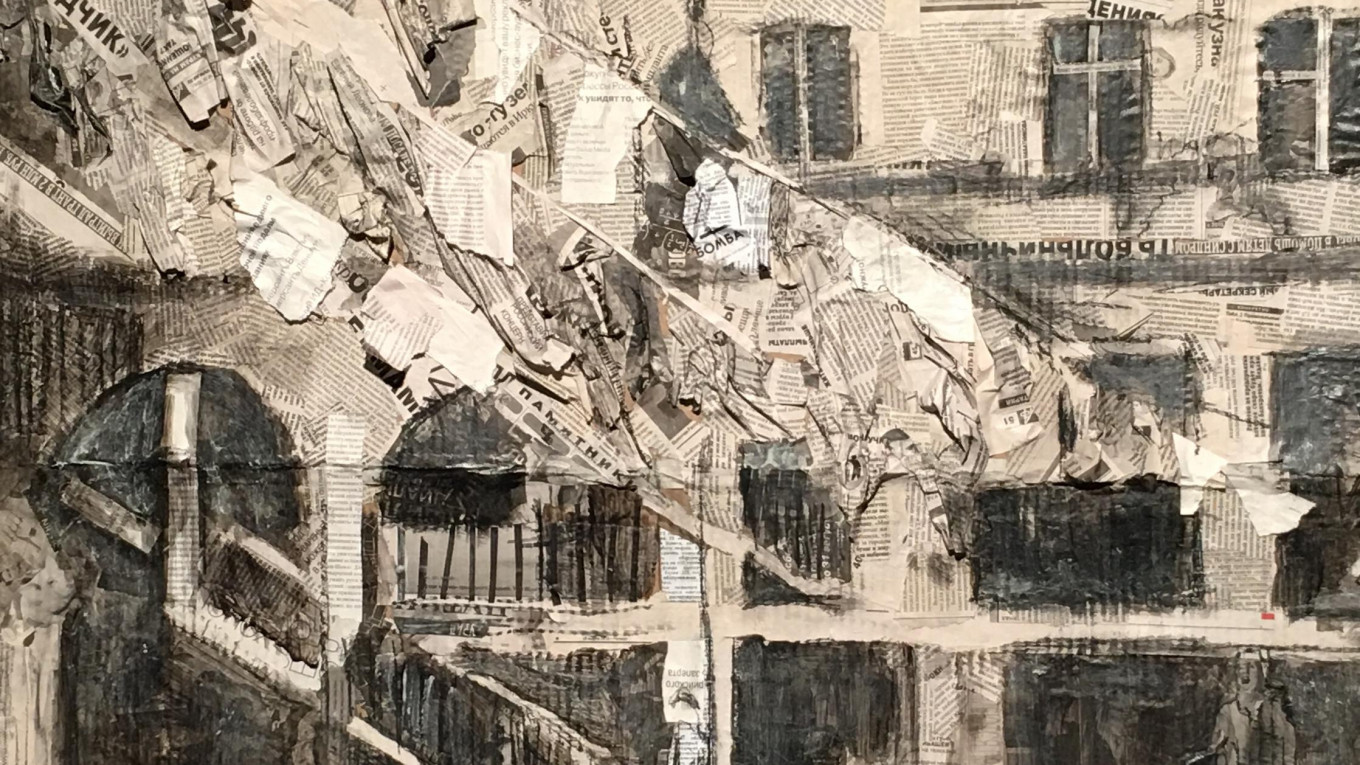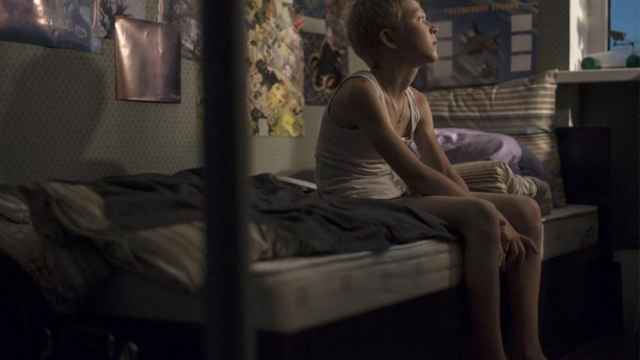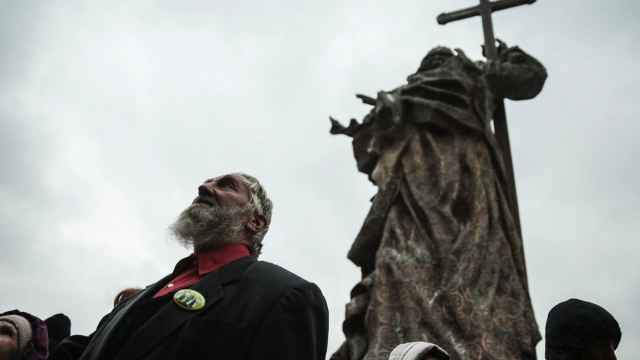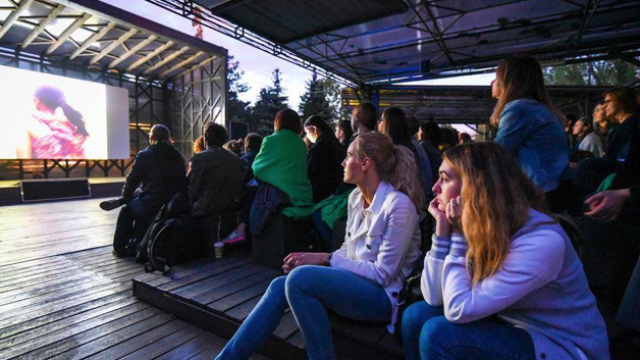Any new museum opening in a big city is good news, but the opening of a new public exhibition space on one of Moscow’s most expensive pedestrian streets is something of a miracle.
But it’s true: Turn onto Stoleshnikov Pereulok, walk past Prada, Louis Vuitton, Hermes and another dozen haute couture shops, slip into an archway and head to the Gilyarovsky Center, a new branch of the Museum of Moscow.
The Center is named after Vladimir Gilyarovsky, a journalist who wrote about Moscow and its people — mostly its lower classes — in pre- and post-revolutionary Russia. His stories were expanded and gathered into several collections, among which “Moscow and Muscovites” is the most famous — and most beloved. Until his death in 1935, he lived next door to the new center.
The Center, the fifth branch of the Museum, is not a house-museum dedicated to Gilyarovsky, but rather a space for temporary exhibitions, theater, musical performances, lectures, film festivals, classes, excursions and other events organized by the museum together with the people it serves: Muscovites. Museum director Alina Saprykina said at the opening that the space would reflect both Gilyarovsky’s passionate interest in the people living in the city and the museum’s belief that the history of the city is “the history of the people living in it and their daily lives.”
The center is also part of the museum’s efforts to move beyond traditional museum exhibitions, which include lending parts of its enormous collection of over one million items to non-traditional venues, such as shopping malls. “Let’s popularize our collection,” Saprykina said. “Let’s bring it out to people who do not ordinarily come to museums.”
To celebrate the opening, the museum commissioned two works: a series of photographs by Raul Skrylyov of the once poor neighborhoods described so vividly by Gilyarovsky: Khitrovka, Ivanovskaya gora, and Solyanka. His black and white photographs, mounted on the wall in a collage, capture what you might miss when rushing to work or home: an artist at her easel, a rappelling house painter, migrant workers striking a pose, graffiti, a business center, a ramshackle building, street singers, dog walkers — and dozens of people, of every age and class, checking their phones.
Another installation by Roman Seleznyov pays homage to Gilyarovsky with an artistic recreation of his office and clippings of his newspaper articles that reveal some of the first harsh reviews of his work when the lights are dimmed.
If you're in the city center over the weekend, stop in for the museum’s “Gilyai-fest,” a film festival of urban stories. The competition program of short films (in Russian) will be shown free of charge every evening from Friday to Monday at 7 p.m.
On Saturday at 3 p.m. the center will welcome one of the city’s greatest film makers, Marlen Khutsiev, director of “July Rain” and “Lenin’s Gate” (released originally as “I Am Twenty”). He will show excerpts from his film “Lenin’s Gate” and talk about how to capture Moscow on film.
The full schedule of films, including several in foreign languages with Russian subtitles shown at the main Museum of Moscow venue, can be found on the museum site.
The first translation into English of Gilyarovsky's "Moscow and Muscovites" was done by Brendan Kiernan in 2015 and can be ordered here.
A Message from The Moscow Times:
Dear readers,
We are facing unprecedented challenges. Russia's Prosecutor General's Office has designated The Moscow Times as an "undesirable" organization, criminalizing our work and putting our staff at risk of prosecution. This follows our earlier unjust labeling as a "foreign agent."
These actions are direct attempts to silence independent journalism in Russia. The authorities claim our work "discredits the decisions of the Russian leadership." We see things differently: we strive to provide accurate, unbiased reporting on Russia.
We, the journalists of The Moscow Times, refuse to be silenced. But to continue our work, we need your help.
Your support, no matter how small, makes a world of difference. If you can, please support us monthly starting from just $2. It's quick to set up, and every contribution makes a significant impact.
By supporting The Moscow Times, you're defending open, independent journalism in the face of repression. Thank you for standing with us.
Remind me later.







